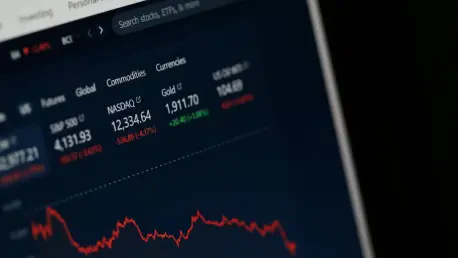In recent months, Goldman Sachs shares have witnessed a notable decline, falling by 15%, which exceeds the industry average drop of 10.3%. This substantial decrease has raised questions about the underlying factors contributing to this downturn and prompted an analysis of what the future might hold for the company’s stock. A primary catalyst for these developments is the 8% decrease in investment banking revenues compared to the previous year during the initial quarter. Market volatility, largely driven by tariff policies under President Trump, has delayed a recovery in mergers and acquisitions, further affecting the performance of the stock. These challenges underscore the importance of understanding Goldman Sachs’s current position and its strategies moving forward as the firm navigates a complex economic landscape, putting significant pressure on its ability to maintain past growth rates.
Strategic Reorientation and Core Competencies
Facing current difficulties, Goldman Sachs is strategically refocusing on its core strengths in investment banking, trading, and asset management, areas where it continues to enjoy positive expectations from Wall Street analysts. The bank has decided to gradually withdraw from consumer banking, a move that aligns with its long-term strategic objectives and allows it to concentrate efforts on sectors with higher growth potential. Despite facing fierce competition within financial services, Goldman Sachs’s solid foundation is evident in its robust Tier 1 capital ratio and a substantial cash reserve of $167 billion as of March. These financial metrics provide shareholders with reassurance, complemented by a dividend yield of 2.14% and a competitive price-to-earnings ratio of 12.06X. The firm’s measured exit from consumer banking reflects calculated risk management, reinforcing its commitment to areas that support sustainable growth and profitability amid fluctuating market dynamics.
Outlook and Investor Sentiment
Financial analysts maintain a cautious optimism regarding Goldman Sachs, citing its strong fundamentals and diversified business model as potential benefits for investors holding onto their positions. The firm’s leadership in deal-making and its global presence serve as significant long-term advantages, suggesting resilience and adaptability in confronting market uncertainties. The overall sentiment leans towards a positive, yet cautious outlook, underscoring the potential for Goldman Sachs to achieve robust returns moving forward. Analysts agree that while challenges persist, the company’s strategic shifts and solid financial health position it well for future success. The synthesis of these insights offers a cohesive narrative of resilience amidst ongoing economic challenges and strategic adaptation, highlighting the importance of staying vigilant and responsive to evolving market conditions to maintain competitive advantage and profitability.









